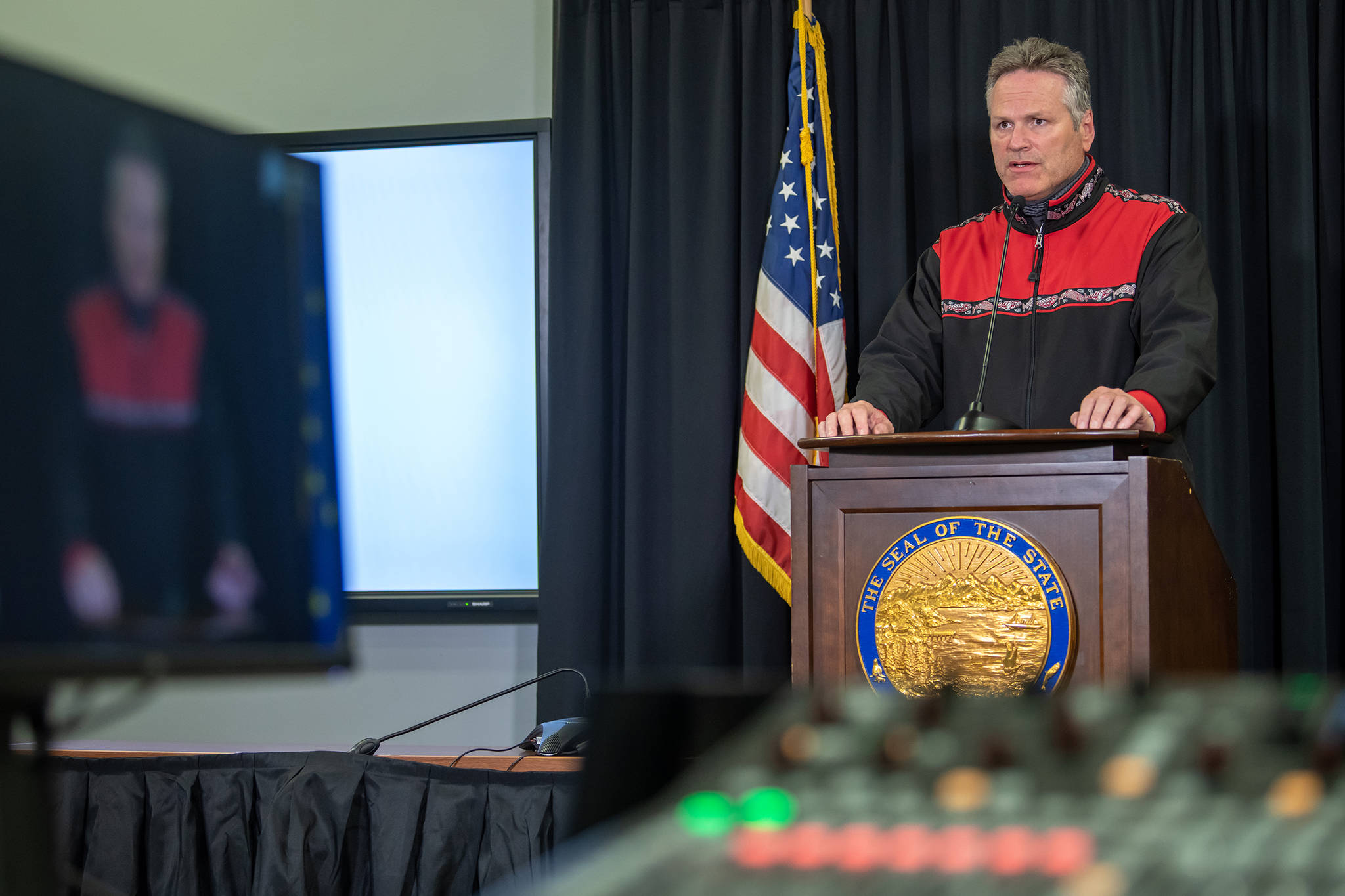The rising number of coronavirus cases in the state is concerning, Gov. Mike Dunleavy said Wednesday in a news conference, but management of the illness had increased and its impacts were not nearly as dire as initially predicted.
The state announced 204 new cases, nine new hospitalizations and a new death Wednesday, which brings the cumulative number of cases among residents to 11,605; hospitalizations to 375; and deaths to 68. However, Dunleavy said the data is not as grim as it could be and there are positives in the numbers.
“Although our cases are going up, we’re seeing a decrease in hospital stays, a decrease in death rate and we’re seeing a decrease in overall hospitalizations,” Dunleavy said, speaking from Anchorage in his first news conference since Sept. 1.
While early modeling showed death rates in the state being much higher, the hospitalization and death rates in Alaska have been lower than similar states, the governor said.
“We anticipate that the cases will continue to rise. We all need to do our best to prevent ourselves from getting the virus. We’re still going to have to continue living. We’re still going to have to function as a society.”
[Growing cluster spurs concern about Juneau’s health care capacity]
The governor urged Alaskans to work on integrating health care precautions into their daily lives.
“I do wear a mask often,” Dunleavy said. “I’ve been out at some meetings where I don’t have a mask on. Am I perfect when it comes to the approach of the virus at a personal level? I’m ramping up my game, but it’s always a work in progress for many of us.”
As cases are rising nationally and globally Director of the Division of Public Health Heidi Hedberg said state health officials are encouraging regional health organizations to obtain as many critical supplies as possible. The state is in the process of using CARES Act money to purchase supplies in bulk, Hedberg said, and the state is working on messaging to health organizations to purchase now and work with multiple vendors to meet their needs.
Chief medical officer Dr. Anne Zink, urged people to get tested as soon as they feel symptomatic in order to identify positive cases as soon as possible and take measures to limit spread of the virus.
“We continue to have widespread community transmission. We’re running a little bit higher than the nationwide average as of right now,” Zink said, referring to the state’s number of positive cases per 100,000 over a 14-day window.
State officials are stepping up efforts on contact tracing, Zink said, but many people are having more contacts which makes the process more difficult. Additionally, “COVID fatigue” and frustration with the ongoing pandemic was leading to some not participating in the contact tracing process.
“There’s no easy way to it,” Zink said. “It’s hard for families, It’s hard for workers. All we can do is learn about it, and we really ask that people quarantine.”
• Contact reporter Peter Segall at psegall@juneauempire.com. Follow him on Twitter at @SegallJnuEmpire.

